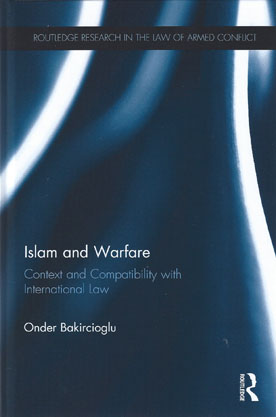
The question of how the Sharia (Islamic law) regulates the notions of just recourse to, and just conduct in, war has long been the subject of heated controversy. This book offers a scholarly exploration of the Islamic laws of war in general, and the controversial concept of jihad in particular.
The book seeks to understand whether the doctrine of jihad complies with the principles of contemporary international law, which envisages unilateral force only in cases of self-defence. The book undertakes a historical and contextual examination of the sources of Islamic law with a view to illustrating their continuing relevance to the debate on the doctrine of jihad and its dynamic interpretation.
The book traces the origins and evolution of the Islamic jus in bello and jus ad bellum rules showing how the fighting verses of the Qur'an and other sources of Sharia have developed over time.
Onder Bakircioglu shows how military jihad might be interpreted in line with the modern political and military context of international relations proposing a contextual interpretation of jihad in the United Nations era. The book surveys recent Islamic state practice on aggressive force, be it committed by state or non-state actors in order to examine whether the basic tenets of Islamic laws of war are compatible with modern international law. Recent "revolutionary risings" within the Middle East are also analysed in order to illustrate how jihad can be used as an important instrument against oppression.